Hit hard
The start of the spring 2012 semester has seen a riot of meetings, spreadsheets, and confusion as the college desperately tries to pull its budget back on track. While some of the issue was identifiable last semester, as you’ll read on page 4, part of this new emergency was basically dropped in our laps as of mid-January. Certain of our troubles could have been avoided with better planning and administrative oversight, and that same critique should be leveled at the state, which has now simply made community colleges responsible for its own short-sighted “solution” of placing an additional burden on our students through fees most cannot reasonably afford.
Analysis of our district budget situation, while decidedly dire and undoubtedly the most serious we have yet experienced at City College of San Francisco, has also been rather fluid these first several weeks. Presumably by the time this issue of Union Action is actually in your hands, we will have more concrete news. There is general agreement that the college will need to move quickly to determine a budget plan that both addresses the current year’s shortfalls and moves us toward a more cautiously balanced budget in the next fiscal year, 2012-13. And it is clear the district expects all college constituencies to contribute.
Priorities
AFT 2121 has argued, and will continue to argue, that there is a measured way through this crisis. That doesn’t mean it will be pleasant or easy for anyone in the college community—or that we can ignore the present shortfall, which could be upwards of $24 million next year.
We know—and perhaps from more detailed perspectives than most in our college community—about the sacrifices faculty have made and the intense financial pressure some are under, particularly after so many years of cuts and absent COLAs. Faculty members have highly varied financial circumstances, but overall the last several years have been a challenge, as they have been for other employees.
So far, as we have weathered these budget typhoons, we have largely avoided throwing more Californians into the unemployment statistics. Repeatedly faculty has told us preserving jobs is of the utmost importance, and we’ve worked to honor that concern. In our membership survey last fall, faculty confirmed that preserving jobs and avoiding layoffs was by far the number one priority.
City College needs improved planning and execution of the budget so that the college is not grasping at straws or resorting to drastic solutions that unfairly burden faculty, staff, and students.
Keeping community in our colleges
Meanwhile, our community colleges face additional changes beyond the budget that will impact our collective work for a long time to come. Proposed “reforms” to the mission of our state’s community colleges now pose a serious threat to the education we will provide in the near future. Rather than advocating our colleges meet the needs of the 99 percent by restoring funding, the recommendations of the statewide Student Success Task Force, now adopted by the Board of Governors, plan to “ration” the education we’ll offer. If implemented, some of these proposals could change the face of community colleges and shut the doors on our most vulnerable students—and not only during this time of fiscal instability, but for the long run.
The 1 percent may have access to the world’s most elite educational institutions, but we need public education for the rest of us. California’s Master Plan for Higher Education recognized that quality, accessible public education was a public good. Under it, the community colleges were intended to be the colleges of the people. But they will fulfill that function less and less as students are priced out and turned away—or identified as “unsuccessful.”
We have made our concerns about such changes clear. Community college faculty members in other districts frequently express to me their gratitude for CCSF’s advocacy in response to the task force recommendations. As the recommendations make their way into the legislative process, we’ll need to make some strategic decisions about how best to defend the community college mission and CCSF’s diverse students in particular.
Not enough to get you down?
There is plenty of other discouraging news, too. The educator- and union-bashing continues, corporations remain “people” in rights but not accountability to others, and while Indiana has newly passed “right to work” (for less!) legislation, California workers will have to fight this November to ensure their continued political voice through the collective power of their unions. We will need to stop the Corporate Deception Act, which seeks to silence workers’ voices and virtually end voluntary contributions to political work. Plus, Governor Brown remains committed to changing pubic employee pensions; ultimately, all of our retirements could be less secure.
Something to pick us up
With so much discouraging news, it’s crucial that we seize opportunities to do good, both in our work with and for students, and in the larger political arena. Voters need some proactive, offensive-rather-than-defensive, “winnable” moves in our playbook. The kinds of things that will make us feel enthusiastic—even giddy—to think we’re part of a democratic process that can work for us.
I’ve met a lot of people, both on and off campus, who do feel giddy about the Millionaires Tax. The prospect of bringing revenues back to education and to critical social services without asking the state’s 99 percent to pay a penny more is enough to get more than two-thirds of the voting public saying “yes!” While we’re looking at discouraging state projections and priorities, we can bring funding back to our CCSF budget, with a well-run local parcel tax campaign this fall and with our other revenue measures. Let’s get out there and make some good happen. (amesser@aft2121.org)


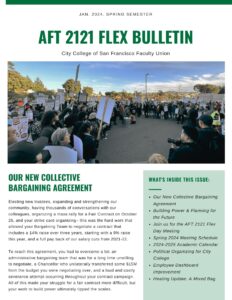
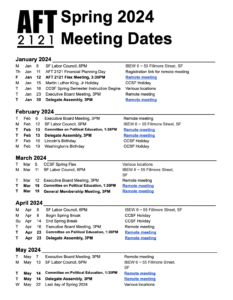
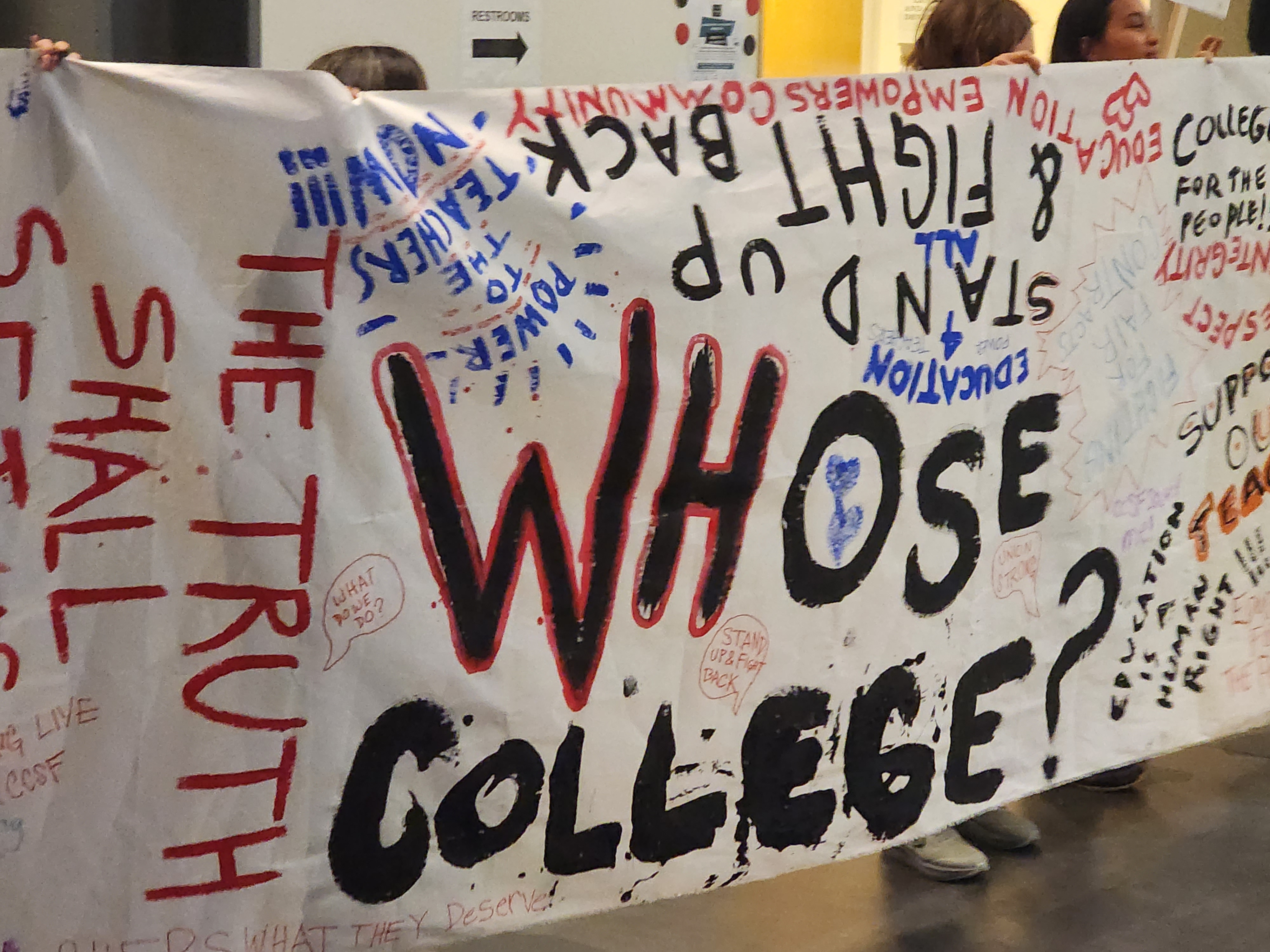
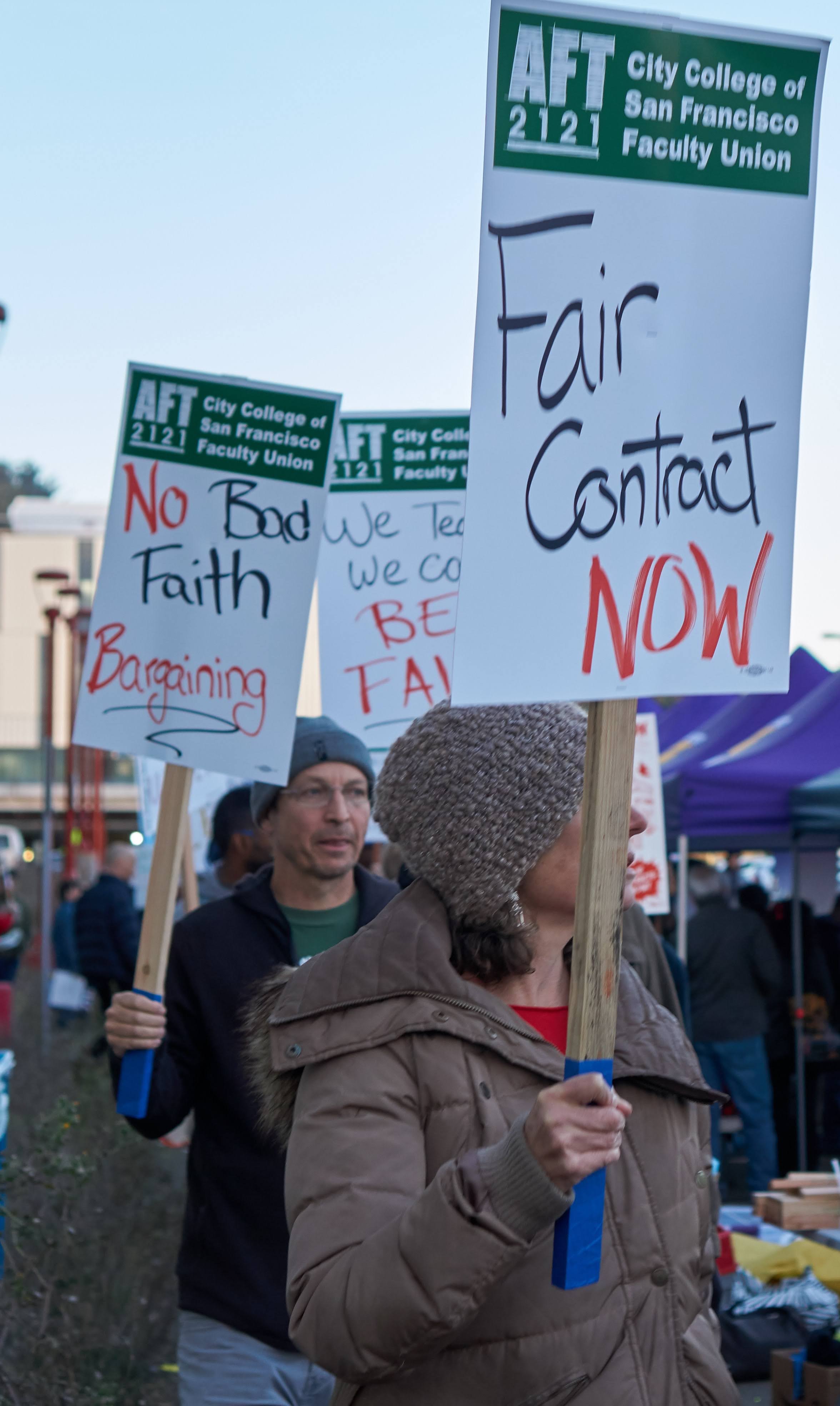
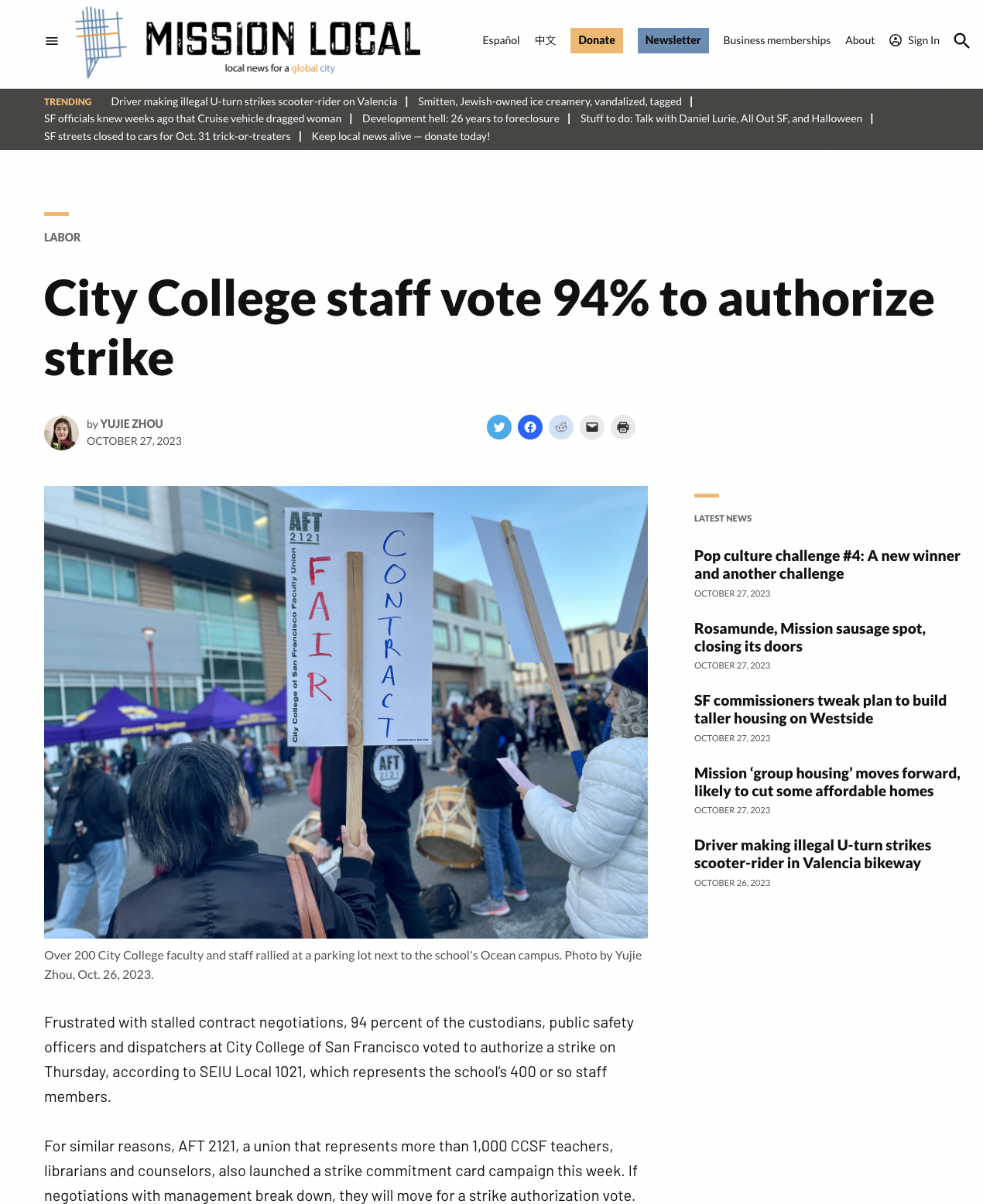
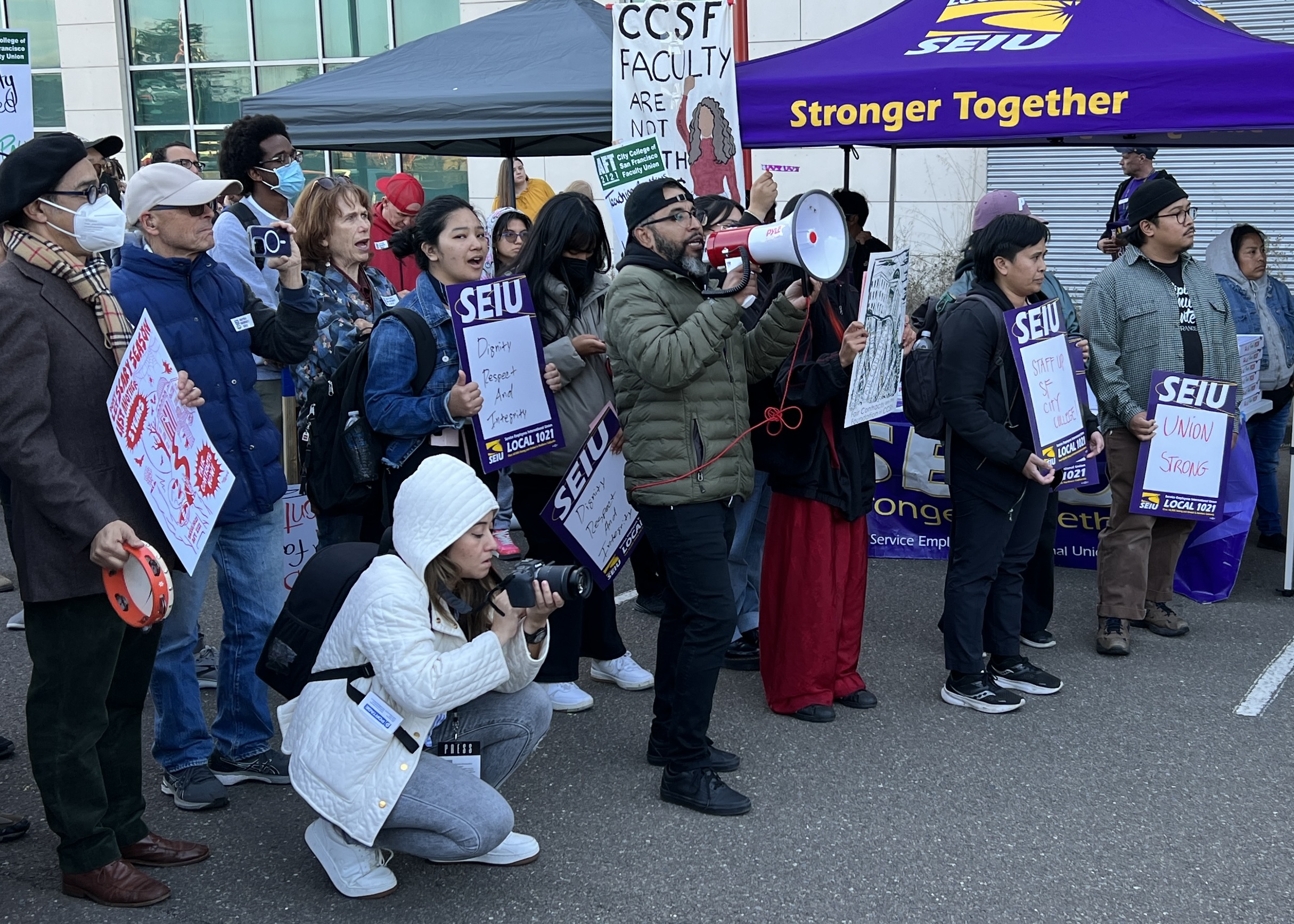
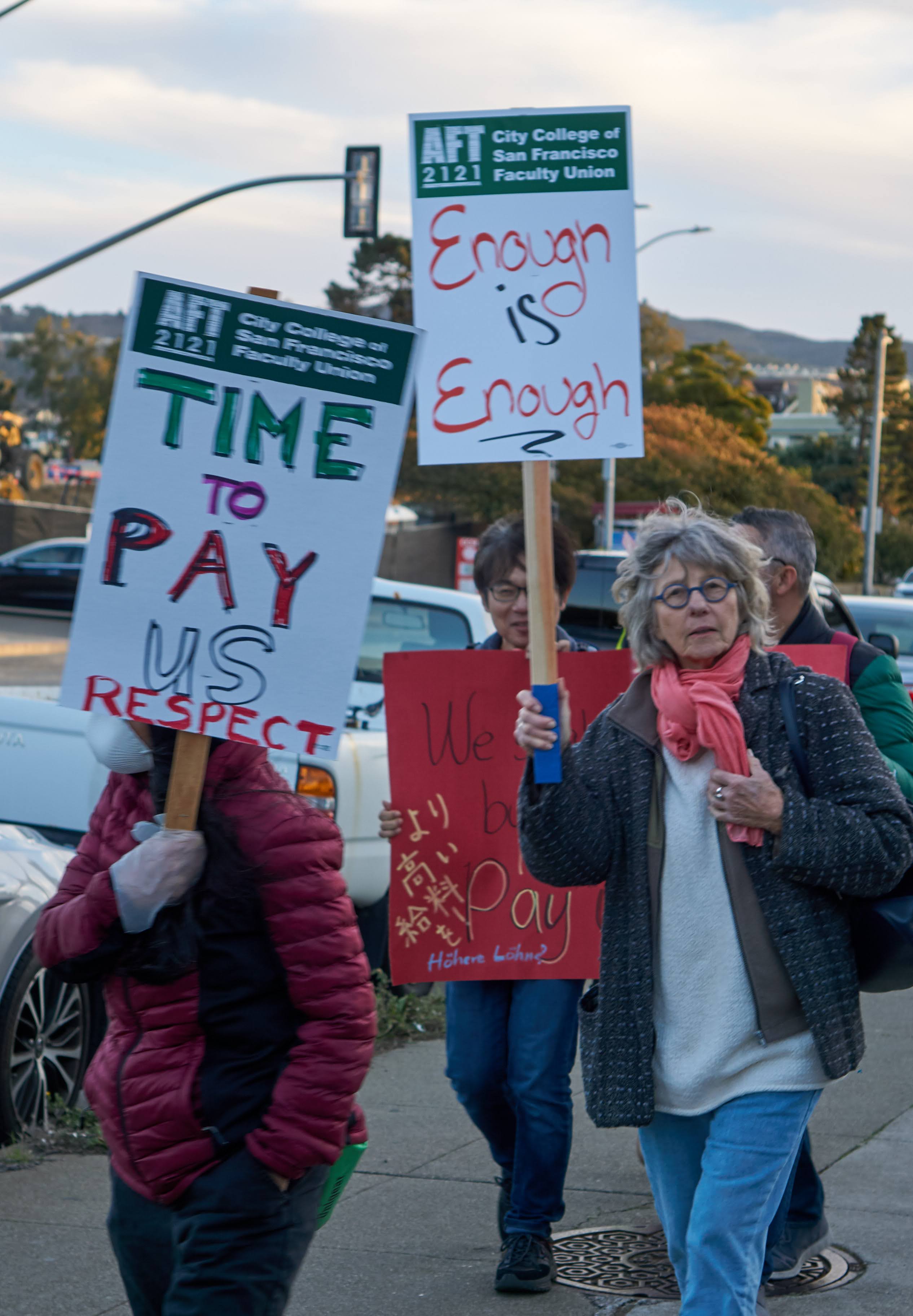
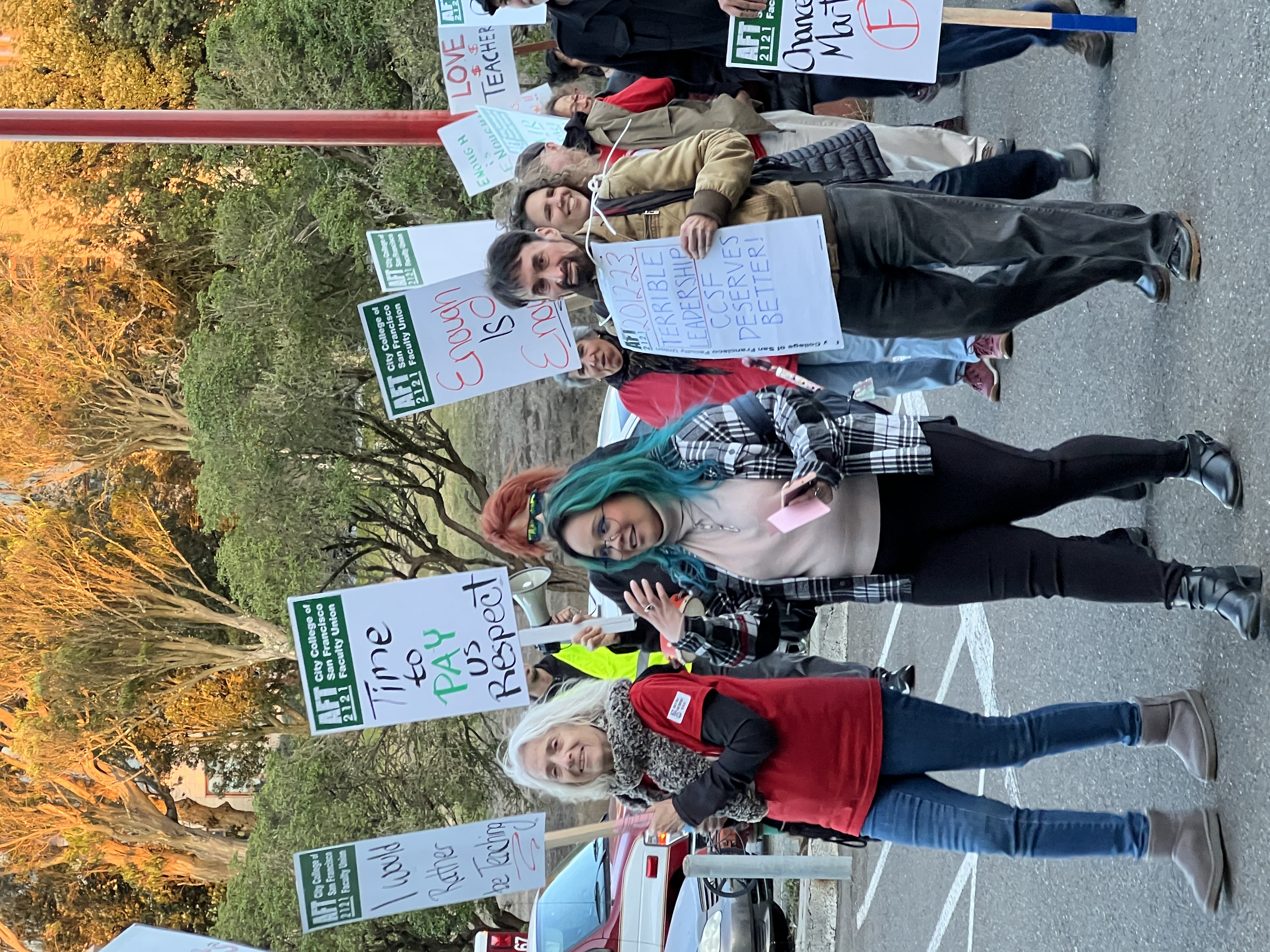
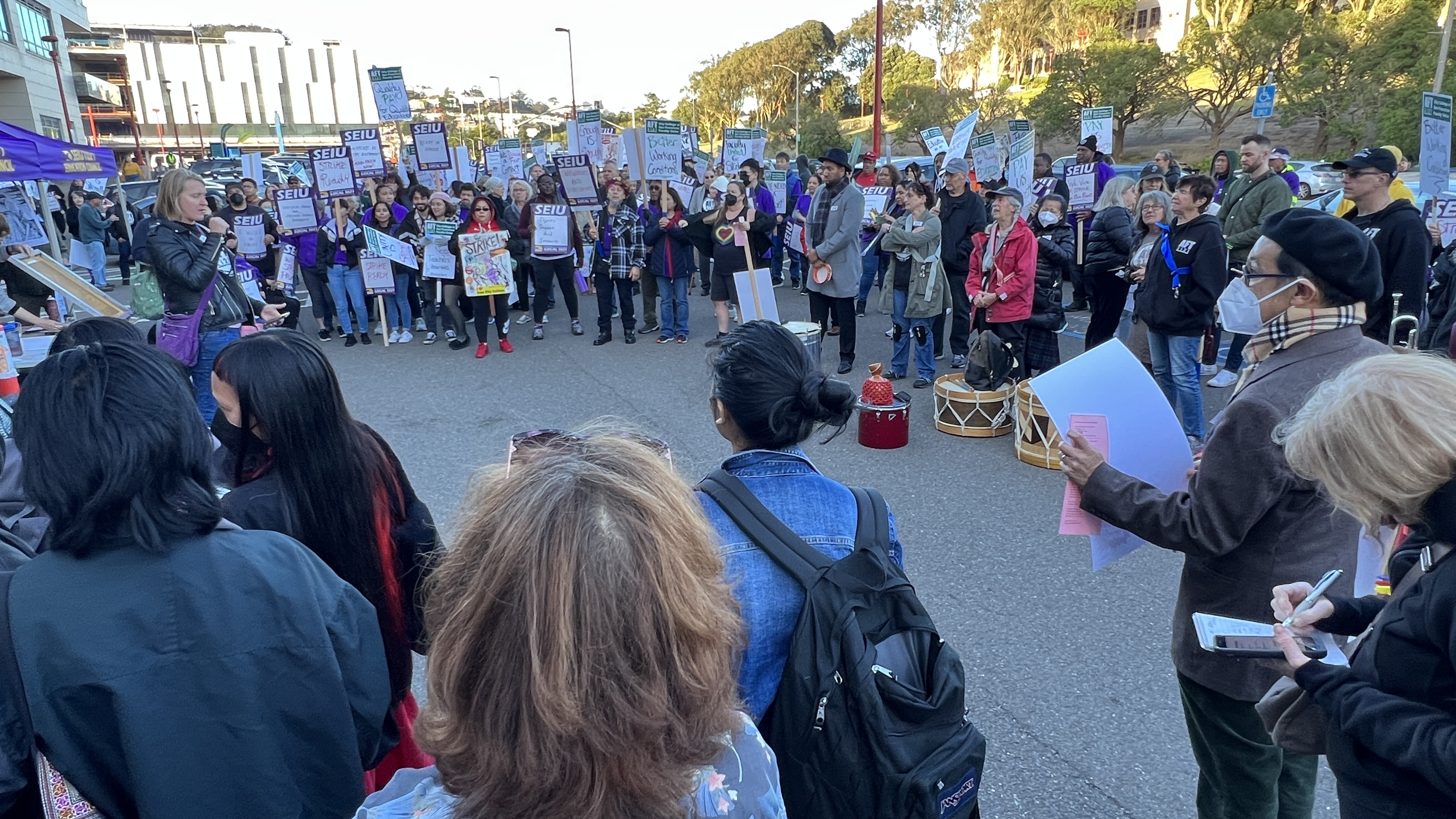
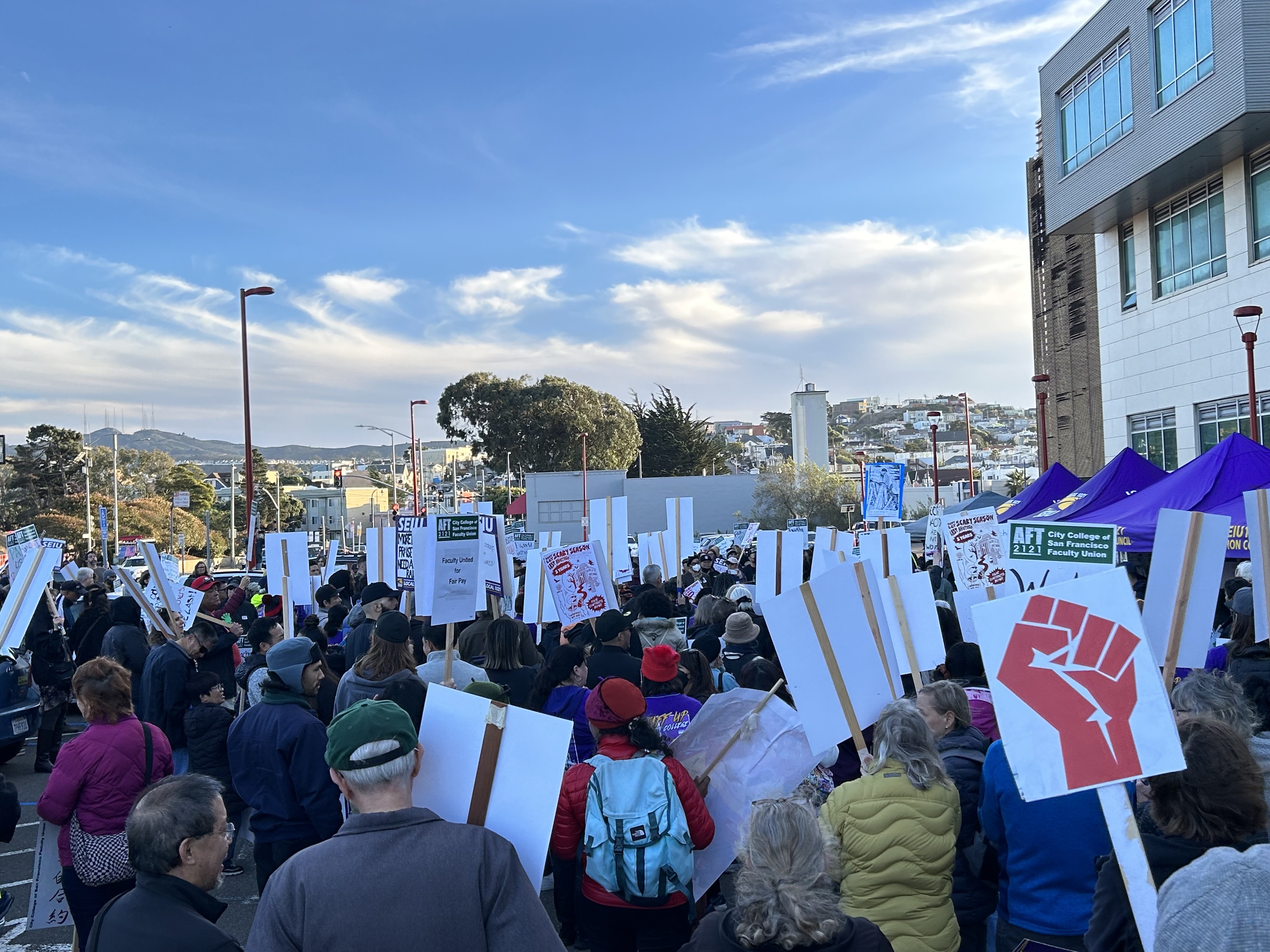
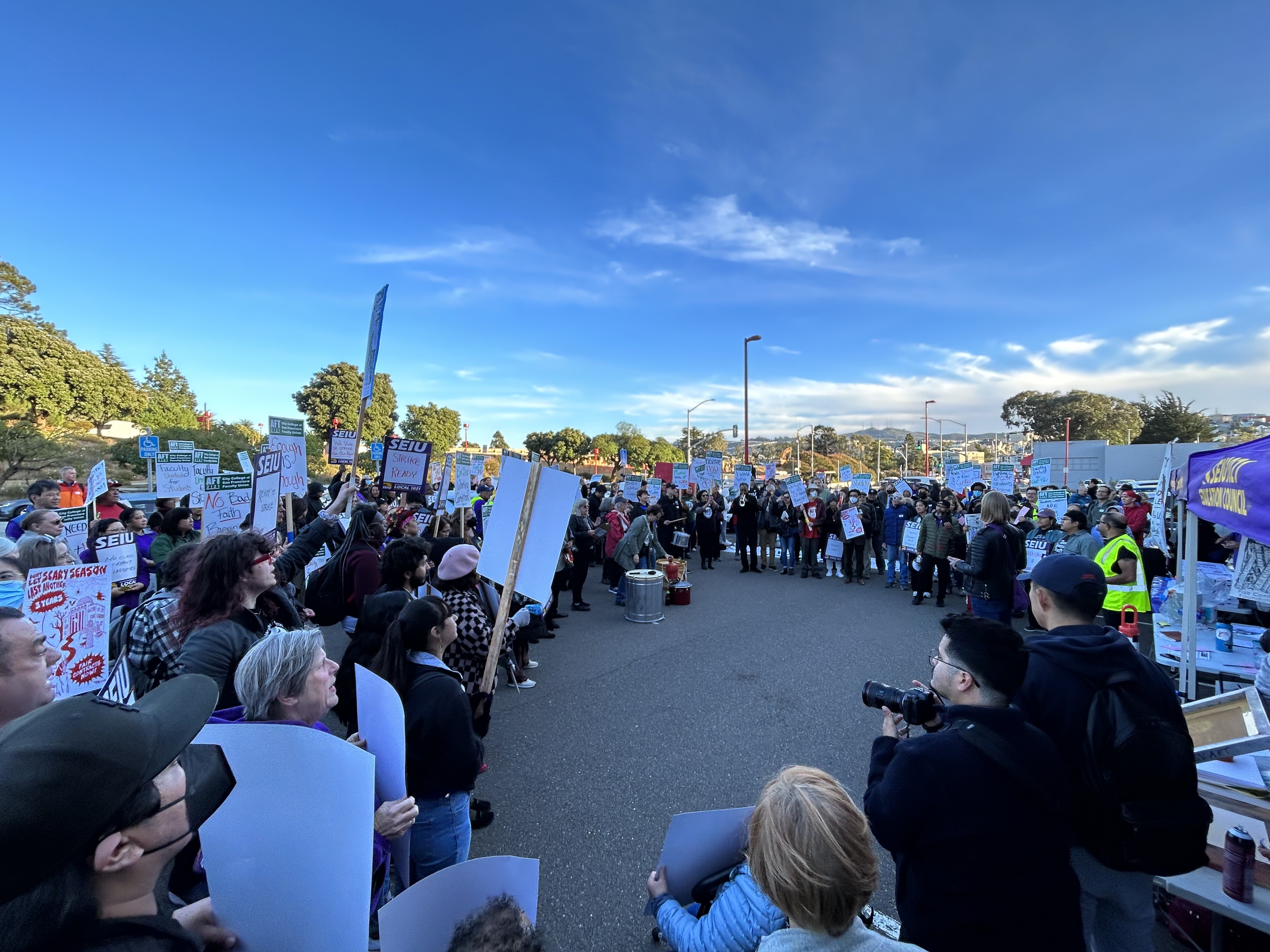
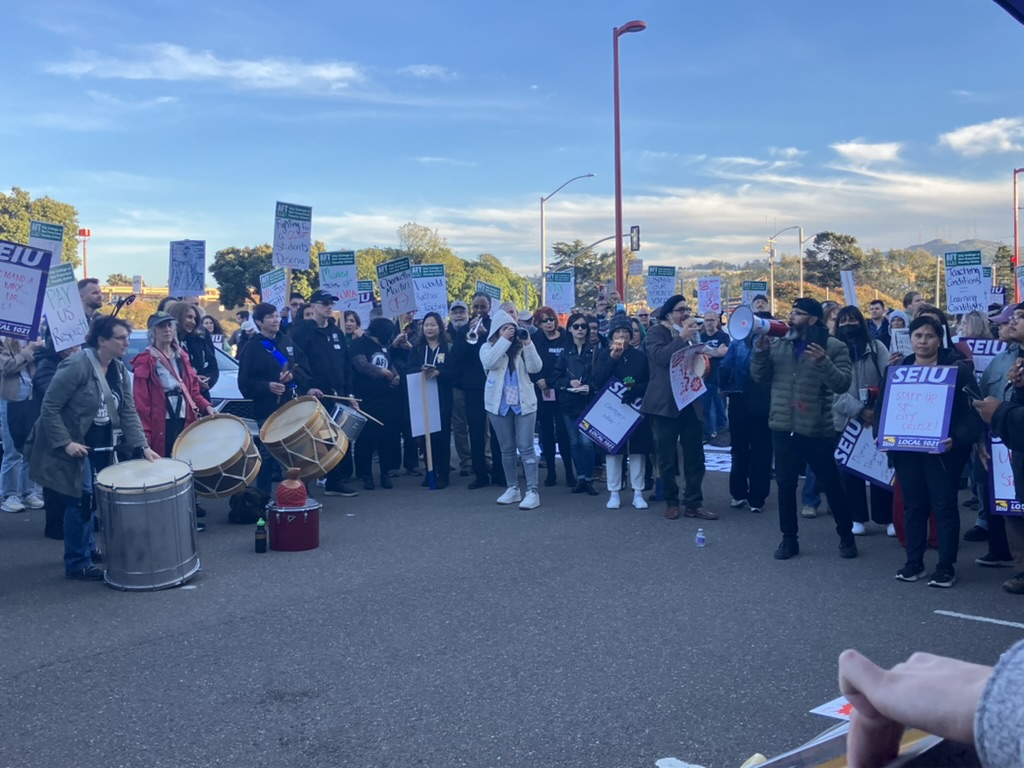
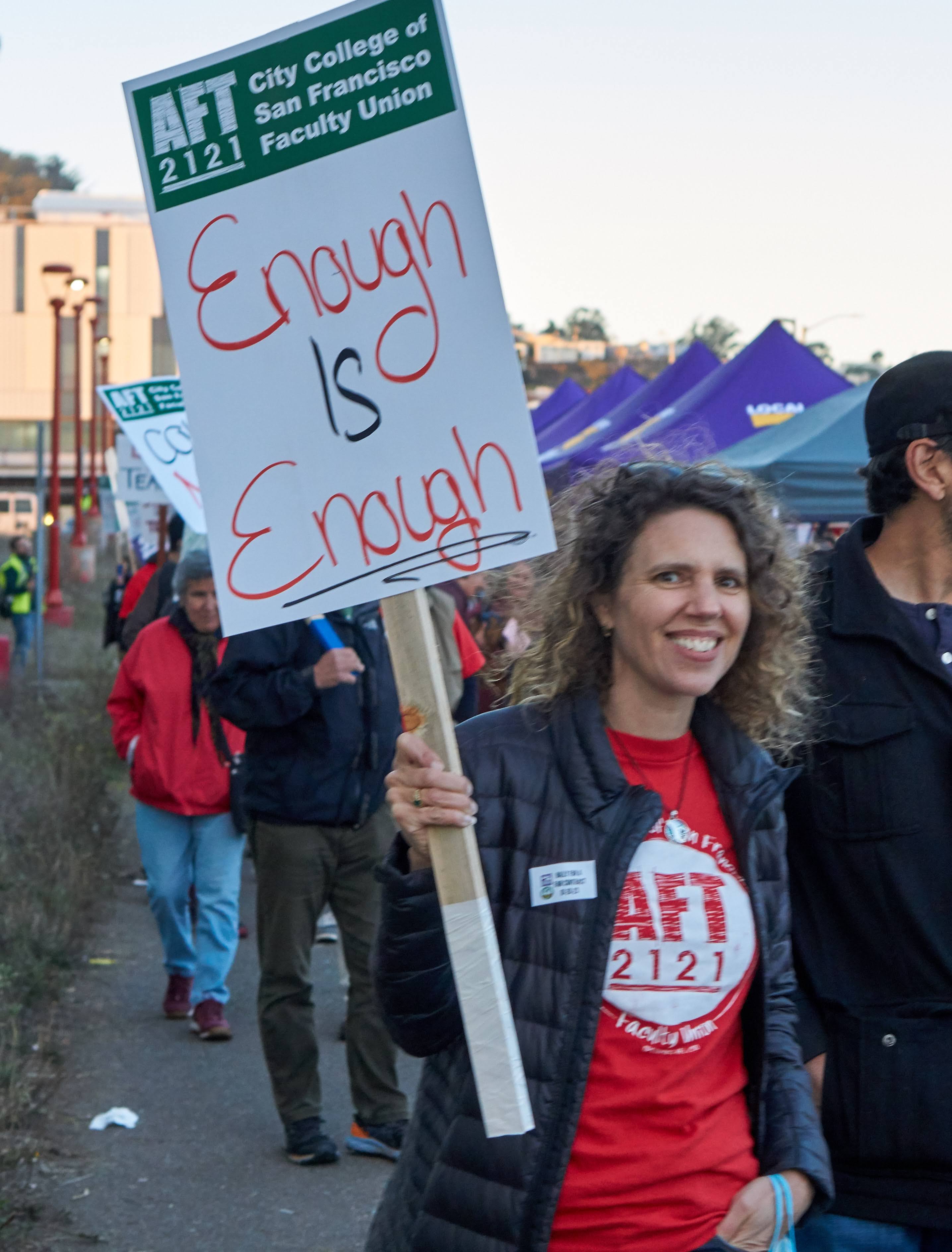

Follow Us!